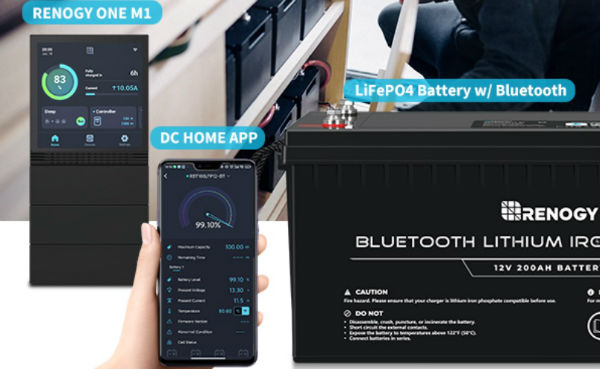Choosing the right Lithium-ion Battery for you Car
The revolution that photovoltaic self-consumption is undergoing means that more and more users are deciding to install or expand their installations to add lithium batteries and further optimize their installation. The aid plan for self-consumption includes subsidies for energy storage or lithium batteries, which is the most expensive component of a self-consumption installation. The 12v lithium-ion battery is one of the most frequently used devices that allow you to accumulate the energy produced by your solar panels when you are not consuming them.
These create an “electricity reserve” that you can draw on at times when your photovoltaic installation is not producing enough simply when there is no sunlight. Therefore, the use of lithium batteries allows you to achieve greater savings on the electricity bill. Although lithium batteries are the most expensive among the types of batteries on the market, they offer great advantages over conventional batteries, such as greater storage capacity; they are smaller and lighter; they support deep discharges, being able to take advantage of the maximum capacity; have a longer shelf life; they do not need maintenance; they do not emit polluting gases and are safer and more reliable.
We have been carrying out photovoltaic installations for many years and we have experience with the different types and brands of solar batteries. An experience that we want to share with you so that you have the necessary information to make the best choice for your batteries. In this article, we offer you a series of keys that you should take into account when choosing the lithium battery that best suits your photovoltaic installation and your energy needs.
Elements to consider when choosing a lithium battery
Batteries are complex elements that require knowledge that can escape even the most skilled users. However, there are a series of essential characteristics that speak of the quality of the device and that you should take into account when choosing your lithium battery.
1. Battery Capacity
It is measured in kWh (kilowatt hours) and is simply the amount of electricity the device can store. You can find lithium batteries for solar panels with a capacity of between 2.4 and 15.4 kWh per module. Note that most batteries are scalable; that is to say, you will be able to expand your storage capacity as your energy needs increase. For example, Renogy Lycan 5000-watt solar generator, the standard battery capacity is 4.8kWH, which can be expanded to 19.2kWH.
2. Battery Power
It refers to the amount of electricity it can deliver at any given time and is measured in kW (kilowatts). It is important to differentiate between capacity (kWh) and power (kW). The first talks about the amount of energy that you can accumulate and, therefore, about the hours that you can have electricity when your solar panel for RV is not producing. The second indicates the number of electrical devices that you can connect at the same time, depending on the power they have. Hence, if you have a high-power but low-capacity battery, it will discharge faster.
4. Battery Depth of Discharge
Indicates how much of the battery capacity you can use before recharging it, to extend its life. Lithium batteries typically have between 80% and 100% depth of discharge versus lead-acid batteries, for example, which are typically between 50% and 70%. This means that if you have a 10 kWh battery you can take advantage of between 8 and 10 kWh of electricity.
5. Battery Efficiency
In the process of transforming and storing the energy in your lithium battery, a series of useful energy losses occur when charging and discharging the device. The lower the losses, the more efficient your battery will be. Lithium batteries typically have between 90% and 97% efficiency, which reduces the percentage of losses to between 10% and 3%.
6. Size and Weight
Being smaller in size and weight, lithium batteries are easily manageable. They also need much less space for the same amount of capacity. The inclusion of storage cabinets for series connection of battery modules reduces the space you need to locate solar storage. You might be interested in batteries in parallel vs series.
7. Lithium Battery Life
The useful life of a battery is measured in cycles that include three phases: discharge, recharge, and rest. Hence, the more cycles a battery offers, the longer its useful life. Although this useful life will depend on your consumption needs, as well as factors such as the production capacity of your solar panels, the depth of discharge, or whether you have a connection to the conventional electrical network, lithium batteries usually have between 4,000 and 6,000 cycles, which could roughly equate to 10 years of useful life.
8. Inverter Compatibility
A fundamental element to remember when choosing your lithium battery is that not all of them are compatible with all solar inverters. Therefore, when you bet on a certain brand of inverters, to a certain extent, you are also linking yourself with some specific battery brands. In addition to the characteristics of the battery, it is important that you take into account the use that you are going to give it, so as not to waste money unnecessarily. Since, as we said, the battery is the most expensive component of the installation.
Therefore, if the solar-powered generator system is for your habitual residence and the batteries are charged and discharged almost daily, it is advisable to choose a lithium battery with more life cycles, since you will better amortize the investment. However, if it is a weekend or vacation home, a battery with many cycles would be oversized, since you may not be able to pay it off in the estimated 10 years of useful life. Therefore, if this is your case, you could bet on one with fewer cycles, which will be cheaper.
